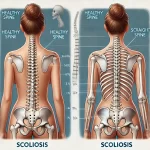
Bone marrow transplants (BMTs) are an important medical procedure used to treat a range of blood-related illnesses, including leukemia, lymphoma, and sickle cell anemia. However, as with any medical intervention, there are ethical considerations to be made when deciding whether or not to perform a BMT. In this article, we will explore some of the ethical considerations involved in BMTs and provide advice for those facing difficult decisions regarding this procedure.
The first ethical consideration to take into account is the issue of informed consent. Patients considering a BMT should be provided with all the necessary information regarding the procedure, including potential risks and benefits, alternative treatments, and the likelihood of success. Patients should also be given ample time to consider their options and ask any questions they may have. Informed consent ensures that patients are fully aware of the procedure and have the ability to make an informed decision about their treatment.
Another ethical consideration is the issue of donor selection. There are two types of donors for bone marrow transplants: related and unrelated donors. Related donors are typically immediate family members, while unrelated donors are found through bone marrow registries. In some cases, donors may also be selected from umbilical cord blood banks. When selecting a donor, it is important to consider factors such as tissue matching, genetic compatibility, and the risk of graft-versus-host disease (GVHD), a potentially life-threatening complication that can occur when the donor’s immune cells attack the recipient’s cells. While it may be tempting to choose a donor who is a perfect match, it is important to remember that the process of finding a donor can be time-consuming and may not always result in a perfect match. In some cases, a partially matched donor may be acceptable.
A related ethical issue is the question of whether or not donors should be compensated for their bone marrow donations. Currently, in the United States, it is illegal to pay for bone marrow donations. However, some argue that compensation would increase the number of donors and potentially save more lives.
Indian Health Adviser (IHA) is a healthcare facilitator seeking to make health and wellness easier for people of international residents, their families, and their friends.
Designed by Acmeinfolabs